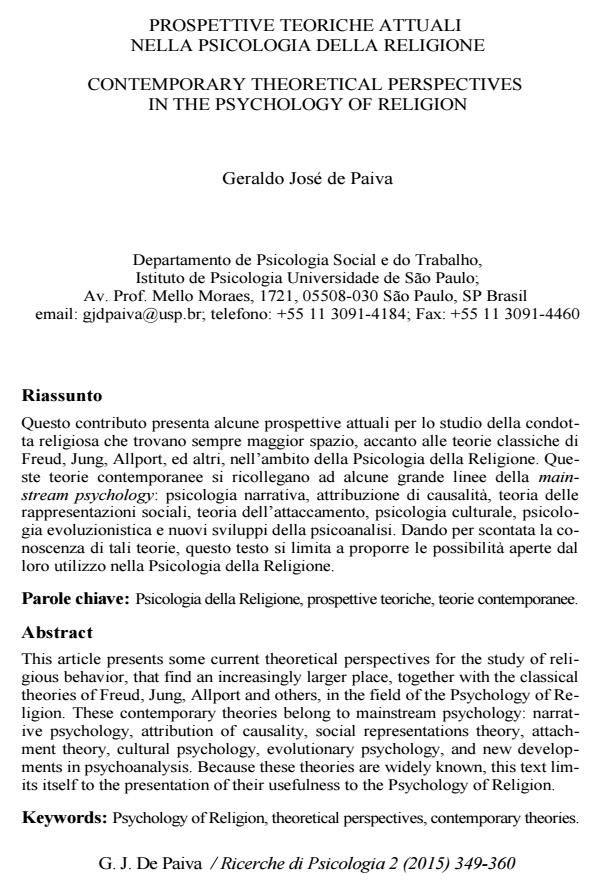Contemporary theoretical perspectives in the psychology of religion
Journal title RICERCHE DI PSICOLOGIA
Author/s Geraldo José de Paiva
Publishing Year 2015 Issue 2015/2
Language Italian Pages 12 P. 349-360 File size 155 KB
DOI 10.3280/RIP2015-002005
DOI is like a bar code for intellectual property: to have more infomation
click here
Below, you can see the article first page
If you want to buy this article in PDF format, you can do it, following the instructions to buy download credits

FrancoAngeli is member of Publishers International Linking Association, Inc (PILA), a not-for-profit association which run the CrossRef service enabling links to and from online scholarly content.
This article presents some current theoretical perspectives for the study of religious behavior, that find an increasingly larger place, together with the classical theories of Freud, Jung, Allport and others, in the field of the Psychology of Religion. These contemporary theories belong to mainstream psychology: narrative psychology, attribution of causality, social representations theory, attachment theory, cultural psychology, evolutionary psychology, and new developments in psychoanalysis. Because these theories are widely known, this text limits itself to the presentation of their usefulness to the Psychology of Religion.
Keywords: Psychology of Religion, theoretical perspectives, contemporary theories
Geraldo José de Paiva, Prospettive teoriche attuali nella psicologia della religione in "RICERCHE DI PSICOLOGIA " 2/2015, pp 349-360, DOI: 10.3280/RIP2015-002005